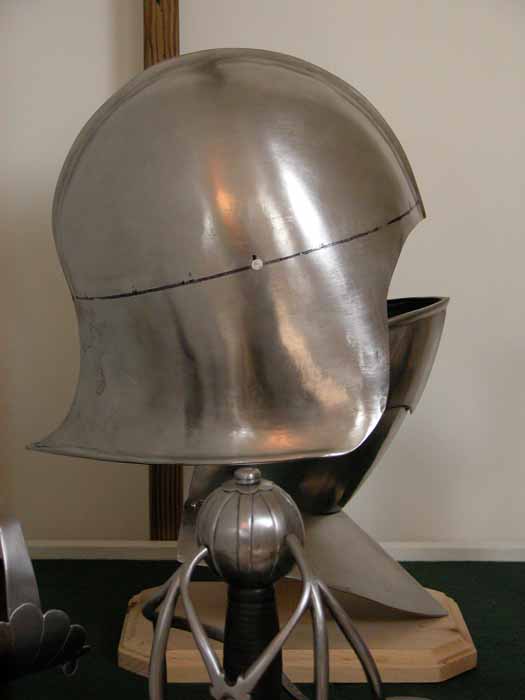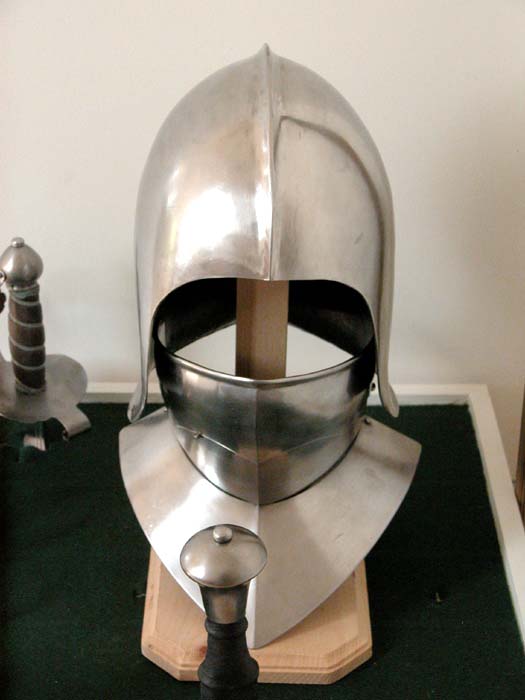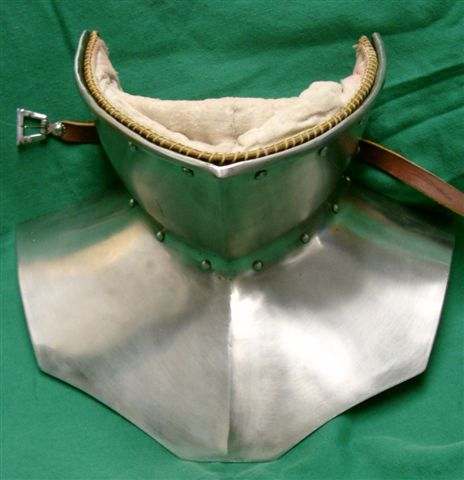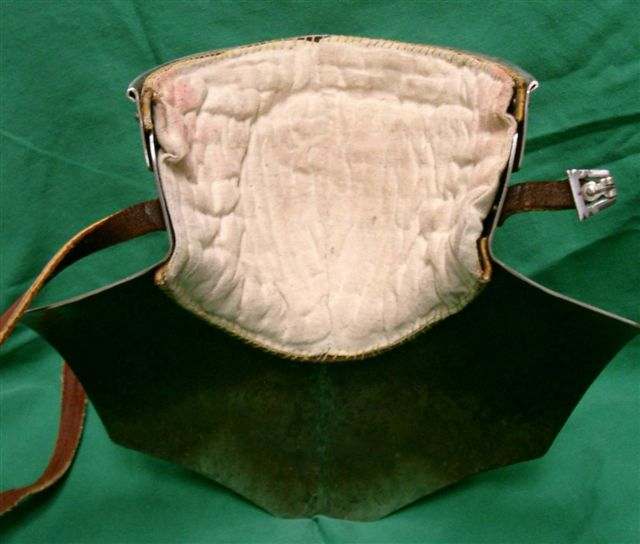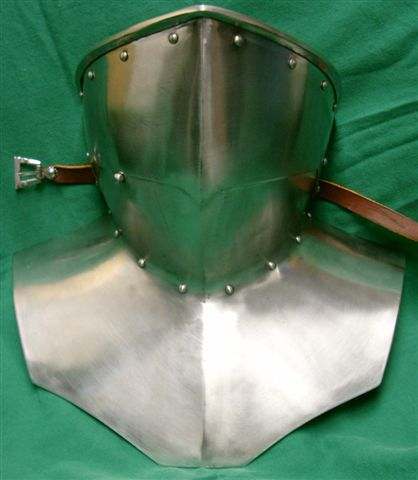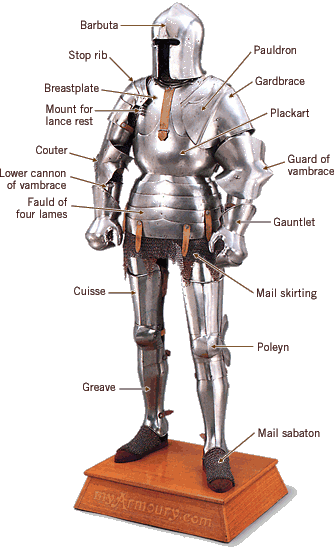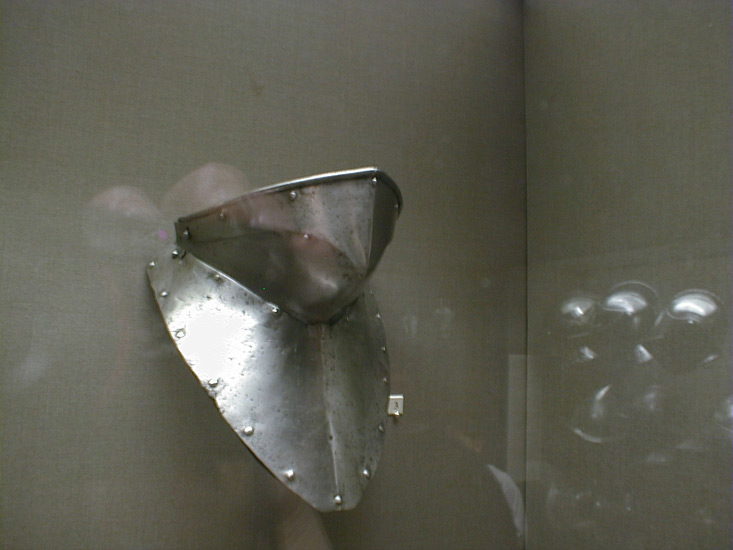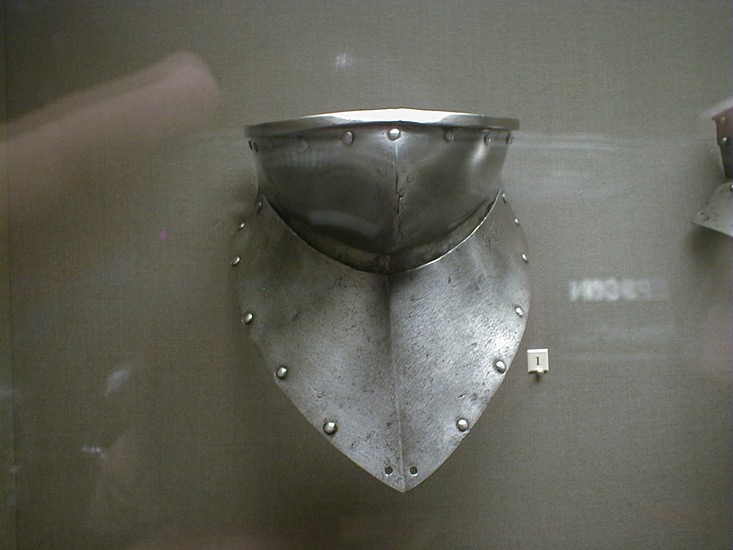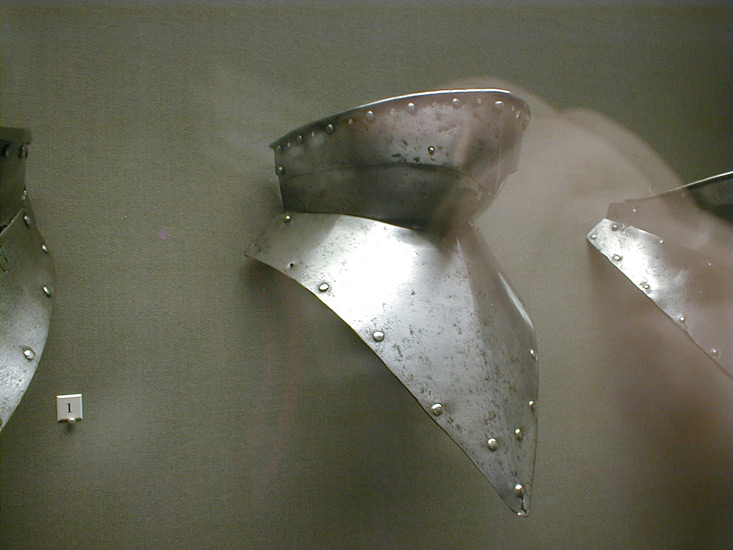The black line around the bowl of the sallet is my guide for placing the rivets for the lining band (7 rivets on each side, plus a lower set of two rivets per side for the chin strap). Does the angle of the line appear to be historically plausible? I've looked at every original and reproduction sallet I can find but can't say for sure. There seems to be an enormous amount of variation, but I think I'm o.k. What do y'all think?
The blob of white clay in the center rivet position here represents the head size of my domed steel rivets. Again, I've seen great variety in rivet size but I'd like your opinions. Is this size within spec, historically?
I have a few photos of lined bevors, but none that show a bevor exactly like mine (though I have seen originals of this form). The lower end of the liner should be secured by rivets at the base of the bevor's throat. That area is somewhat obscured by the lower plate of my bevor. Can anybody here show or say how the lower end of the lining should be attached in this case? (and, by the way, is the name of this piece correctly pronounced (in English) to suggest that one has a semi-aquatic mammal strapped to one's face ("BEE-vur")?
Finally, I've already done a bit of work to make this sallet more historically accurate than it was when I acquired it (removing an ahistorical visor and patching the resulting holes). It's two-piece, welded construction with a turned under lower edge, so not perfectly historical although it's looking better and better. So I'm debating whether or not to use modern round washers under the rivet peen on the lining band or make more historically appropriate square or octagonal rivets from thin steel (a relatively simple project but never to be seen.). I'm wondering if the washer choice would be a deal-breaker for living history types if I ever want to sell the piece. I'd hate to wreck the value of the piece just to avoid a couple of hours of labor. What would you do?
Thanks for any tips!
